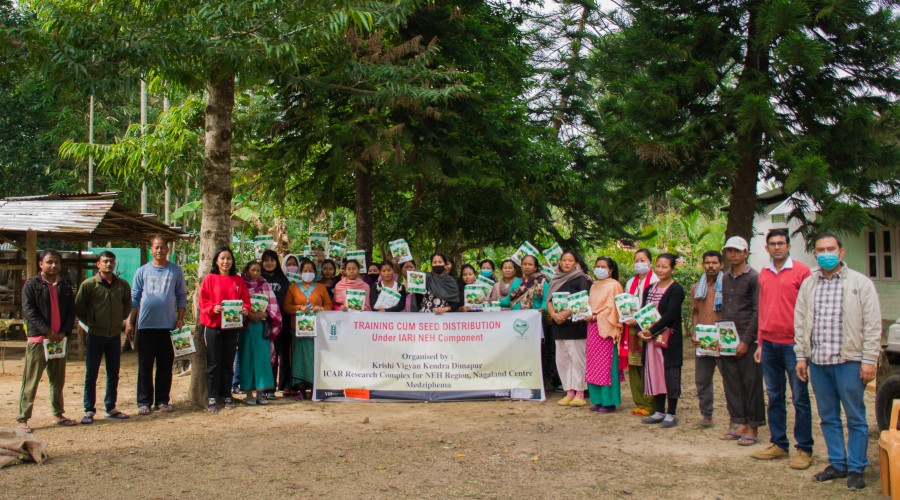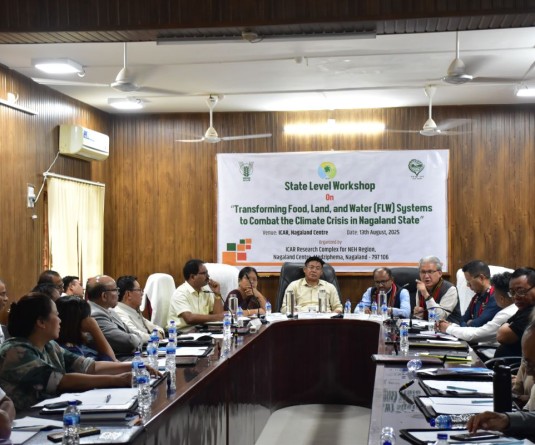Participants of the one day field day programme on participatory seed production.

Dimapur, January 22 (MExN): The ICAR Research Complex for NEH, region Nagaland Centre, Medziphema and Krishi Vigyan Kendra (KVK)Dimapur, organized a field day on participatory seed production of Toria variety TS-67 and TS-36 with the objective to show the performance of TS-67 and TS-36, a short duration high yielding rapeseed variety, at Dhansiripar village of Dimapur district on January 18.
According to a press release, during the last two decades, the domestic consumption of vegetable oils increased at CAGR of 4.3% and is expected to continue increasing with the growing population, changing demographic pattern and rising per capita consumption due to increased GDP growth. Almost 72% of the total oilseeds area is confined to rainfed farming cultivated mostly by marginal and small farmers. Lack of appropriate technologies, cultivation under input-starved conditions, combating the biotic and abiotic stresses are some of the major causes for poor productivity of Oilseeds. India's domestic oilseed production needs to go up about 54 MT by 2025 to reduce edible oil imports by 10 MT annually. Therefore, there is a need to enhance the production and productivity of oilseed crop in North eastern region of India to meet the increased demand of vegetable oil in the region. Keeping this in view, farmers were trained about quality seed production of toria, to meet quality seed demand as well to enhance the production and productivity of toria oilseed crop in the state.
During the programme, field demonstration was carried out wherein the importance, future prospects and know-how on participatory toria seed production of variety TS-67 and TS-36 was discussed by Dr Harendra Verma, scientist, Plant Breeding and Genetics, ICAR Nagaland Centre, Medziphema. He encouraged the farmers to participate in the high quality seed production technologies to meet the local seed demand, the release stated.
Dr Roben Singh, SMS, KVK, Dimapur also emphasized on agronomic practices of oilseed crops production and after the programme, certain vegetable crops seeds of improved varieties with nutritional packages were distributed to the farmers of Dhansiripar village.
A farmer-scientist interaction was also conducted in which queries related to pest management and nutrient management was discussed. A total of 35 farmers attended the programme.






